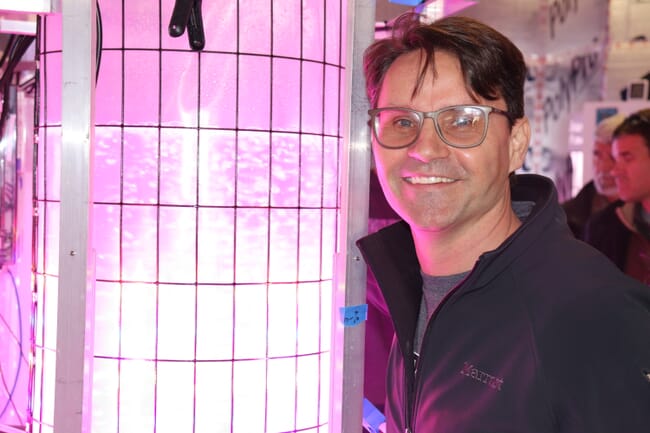
The letter, sent via the umbrella organisation Stronger America Through Seafood (SATS), highlights the opportunities presented by the industry – which is poised for growth that can be expanded here in the US through passage of legislation introduced earlier this year.
It follows the introduction of the bipartisan AQUAA Act in March by Collin Peterson (D-MN) and Steven Palazzo (R-MS), and May’s executive order from the White House which included instructions for the creation of aquaculture “opportunity zones”.
“As millions of Americans are reeling from the impacts of the COVID-19 pandemic, the seafood community, like many others, is hurting. But Congress has a unique opportunity to build an American seafood future that can bring us through this challenging time and support a diverse workforce, enhance sustainable ecosystems and guarantee healthful, locally-sourced protein for American consumers while providing opportunities for other US industries, including the agriculture industry,” the letter states.
“At present, the US lags far behind the rest of the world in farmed seafood production. The single biggest reason for that is the lack of a clear regulatory pathway for permitting new projects, a challenging reality that has forced many American businesses to invest in other countries,” it continues.
Signatories include representatives of a wide range of commercial organisations including Cargill, Hatch and Troutlodge, as well as academic institutions such as the University of Southern Mississippi and the Mote Marine Laboratory. Other notable organisations include the Florida Department of Agriculture and the Aquarium of the Pacific. They highlight the value of the AQUAA Act and the environmental safeguards that it offers.
“To remedy these challenges, the AQUAA Act establishes a clear permitting process for US marine aquaculture that also prioritizes environmental and societal health. For example, AQUAA establishes National Standards for Sustainable Offshore Aquaculture which, like the National Standards for commercial fishing outlined in the Magnuson-Stevens Act, are guiding principles for growing coastal economies, protecting ecosystems and avoiding conflict among stakeholders. AQUAA leverages modern siting and monitoring technologies to mitigate potential environmental impacts. It also provides for strict federal enforcement and includes a process for robust public input which ensures that coastal communities and states are considered prior to permitting new operations. In short, AQUAA provides much-needed regulatory certainty for US marine farmers while also preserving the environment, local economies, and public health.”
The authors also point to the aquaculture sector’s potential to counteract the economic downturn caused by COVID-19.
“As America begins to rebuild from the devastation of the COVID-19 pandemic, creating a new American seafood supply will have rippling effects throughout many areas of the country. Increased aquaculture production will lead to increased demand for American-grown crops, which can be used in plant-based fish feed, such as soybeans, corn and peas, will open up new markets to heartland farmers and lessen dependence on the uncertainty of foreign trade relationships,” they argue.
And, the letter urges, regulation is the key to success.
“For the US to continue to expand the aquaculture industry and tap into the full economic potential that aquaculture can provide, Congress needs to further solidify the regulatory framework, provide clear guidance, and allocate additional funding through new legislation.
“We urge you to contact the sponsors of the AQUAA Act, Reps. Collin Peterson (D-MN) and Steve Palazzo (R-MS), to learn how this bill will help create jobs and drive sustainable, economic growth in your communities,” it concludes.

